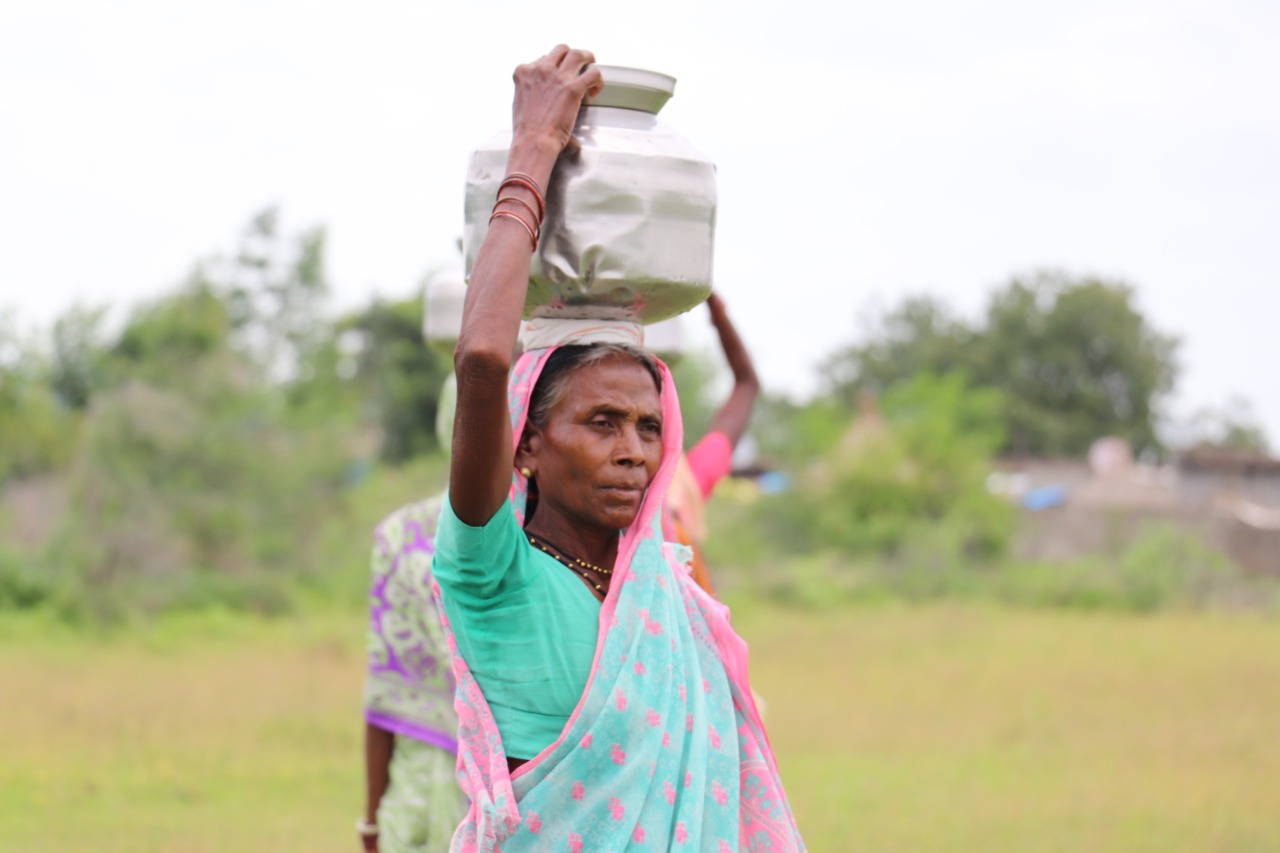- home

- Publication & Resources

- Blog
- A NEW WAVE: Farmers of Tipli

A NEW WAVE: Farmers of Tipli
To try to describe Tipli and leave out technology – as the English say – is like trying
to present Shakespeare’s play ‘Hamlet’ and leave out Hamlet himself.

By Isha Banerjee | Reporter – CASA Communications
This is a real story of a village that could not be easily Googled nor was ever heard before.
Back in the days when technological developments within agriculture were doing rounds in India, the residents of this small Tipli village believed it to be a kind of advancement was that far from their reach. Of course they were using basic mobile phones and had even heard about computers. They even called satellite in Hindi as “Antriksh-yaan” (spaceship). Close enough!
By the year 2015, the perception towards technology changed for the men and women of Tipli. You enter the beautiful village and you will find a technological instrument ‘Weather Recording Station’ in the midst of their cooperative farm. “The transition was not easily understood by ordinary terrace farmers like us but we know everything now,” says a Tipli farmer.
Many would call these zealous residents of Tipli “naive” to quote they “know everything.” What they really wanted to say was that they are prepared for everything – which they were before traditionally; only this time they believed in the power of data and technology. Looking on the other side, it was also the belongingness of their homeland which was calling them home and that edged these determined middle-aged farmers closer to technology.
According to the 2011 Census data, as many as 2,26,949 farmers left farming and migrated from their birth place. The Census data from 11 hill districts suggest the maximum number of 36,401 farmers migrated from Almora, followed by Pauri (35,654), Tehri (33,689), Pithoragarh (22,936) and capital Dehradun (20,625).
India’s technological revolution picked up in early 2000. Soil Health cards, motors, modern machines, fertilizers and pesticides revolutionised Indian agriculture. Not everywhere!
Tipli is situated on the Himalayan state Uttarakhand’sTehri district where tractors and motorised vehicles were not fully suitable for terrace farming – a prevalent form of agriculture in the mountains.
Farming in hill districts such as Tehri and Pithoragarh still remains mostly rain-fed where land holding is small. On the other hand, the districts which fall in the plains are comparatively prosperous compared to their counterparts in the hills as they have comparatively bigger land holdings and better irrigation facilities.
In sharp contrast to the plains, the farming in hills has become a non-profitable entity for the farmers. Government figures show around 8% decline in farming land — from 7.91 lakh hectares in 2009-10 to 7.41 lakh in 2011-12.
Apart from that, the next big obstacle was the changing weather pattern induced by climate change. The state went in shock when 2013 massive flooding and landslide triggered by sudden cloudburst paralysed Uttarakhand’s economic stability claiming 5,748 lives. Tipli did not bear much of the damage but was preparing for the same or for worst.
As a result the village saw population decline with youth moving out their homeland and settling in main towns in search for work – abandoning agriculture. Decline in population, fewer labour for agriculture and reduction in cattle rearing forced the left-over residents to depend upon chemical fertilizers and pesticides.
It was difficult at first, but the farmers kept on trying. A visit to Tipli will help you imagine how our forefather dreamt of revolutionising the agrarian sector.
Here in Tipli you will hear farmers’ stories of homecoming; you will be taught by the farmers to read and analyse rain, wind and soil data; you will observe how farmers are cropping scientifically; you will be taken aback by the aspirations of these sickle-bound farmers who want to make Tipli – an ideal village – for our future to look upto.
 Previous Blog Post ADAPTATION – WHAT IS THE LIMIT?
Previous Blog Post ADAPTATION – WHAT IS THE LIMIT? THE AGRO-TECH HAMLET
THE AGRO-TECH HAMLETFeatured Post

International Women’s Day -2021
8 Mar 2021
International Women’s Day -2021 is very special for CASA. It’s a delight to announce, CASA with the support of the Church of Sweden has launched an exclusive Gender Desk to emphasise the importance of Gender Justice work. CASA has been working for Gender Justice all throughout and across our constituencies in all these years. Gender Desk comes to add vigour […]

Overcoming Gender and Poverty Barriers
Poverty has been an inevitable problem in India since the beginning of time. The increasing problems of poverty caused by overpopulation and the unequal distribution of wealth among the people have led to a huge impact on the life of millions in the rural as well as the urban area. A person has to acquire […]

Impact of Climate Change on Women
16 Jan 2021
Climate change is a prevailing problem globally whose hazardous repercussions extend beyond the environment. Shrinking glaciers, extinction of plants and animal species, mutation, rise in the Earth’s average temperature and triggered seasonal fluctuations, are some of the impacts of climate change that have already grabbed the headline. Certain early predictions pertaining to climate changes had […]



